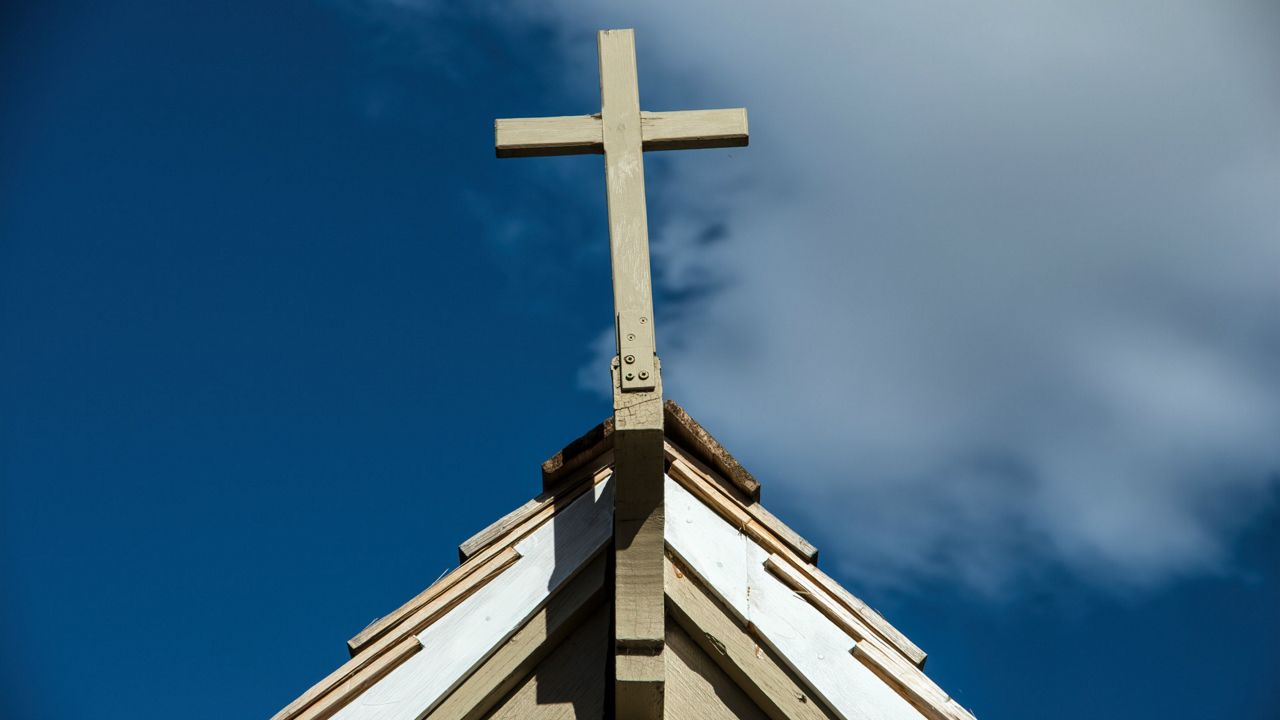MURRIETA (CNS) - Several pastors in Riverside County are among hundreds throughout California who intend to ignore remaining coronavirus-related restrictions on in-person church services and open their doors to congregants at the end of the month.
More than 1,200 clergymen and women have signed a "Declaration of Essentiality'' stating their commitment to hold in-person services on May 31, the Day of the Pentecost.
"This act of solidarity between members of the clergy from varying denominations, ethnic backgrounds and geographic locations is unprecedented in recent times,'' said Robert Tyler, attorney and president of Murrieta-based Advocates for Faith & Freedom. "These pastors are willing to stand against the state and face fines or penalties in order to fulfill their calling and the essential needs of those around them.''
Gov. Gavin Newsom was put on notice about the undertaking in a letter bearing the signatures of Pastor Tim Thompson of 412 Church in Murrieta and Pastor Tom Hughes of 412 Church in San Jacinto, among others.
The governor's office did not immediately respond to a request for comment.
In his March 19 executive order stemming from the coronavirus emergency, Newsom excluded houses of worship from permissible activities under his list of "essential'' operations.
The prohibition against churches conducting any type of services which was reinforced by a similar public health order in Riverside County that has since been annulled, was modified by the governor last month to permit so-called "drive-in church services.''
Newsom, the state attorney general and other parties were federally sued to stop further enforcement of the executive order barring in-person worship, but the proposed civil injunction was rejected by a U.S. District Court judge in Riverside, who declared that a public health threat takes precedence over arguments in favor of public gatherings, particularly when livestreaming and other options are available.
However, in Kansas last month, two churches filed a similar federal suit, challenging that state's governor over bars to in-person worship, and in that case the judge granted a temporary injunction allowing services to proceed. The federal jurist cited the First Amendment to the U.S. Constitution validating the freedom of convening religious assemblies without government interference.
Soon afterward, based on similar reasoning, the U.S. Sixth Circuit Court ruled in favor of a Louisville, Kentucky, Baptist church seeking to hold services in defiance of a state mandate tied to COVID-19.
"California's public gathering exemption includes a wide range of enterprises: airports, public transportation facilities, the entertainment industry, construction sites, news media facilities, childcare locations, marijuana dispensaries, liquor stores, cafeterias, big box stores, grocery stores, convenience stores, carry-out restaurants and other establishments where large numbers of people gather and assemble,'' according to the letter sent to Newsom.
"Why shouldn't a church or synagogue be allowed to operate within appropriate health guidelines just as secular enterprises that engage in similar conduct?'' the petitioners stated. "If it is OK to stand in line at Costco, it should be okay to stand in prayer at church.''
The declaration says public health authorities have performed a laudable service mitigating COVID-19, but the measures have gone too far, for too long.
"The clergy of this state are convinced that they must reopen their ministries to fully serve the needs of their communities,'' according to the declarants. "The spiritual services of ministries are absolutely essential to the health and welfare of the people of California."
They pointed to recent studies indicating major mental health impacts, including suicides, connected to stay-at-home orders and job losses as examples of why positive reinforcement from churches is vital.
"The closure of religious organizations is preventing the numerous ministries and social services provided by churches to the poor, unemployed and distressed,'' according to the letter. "The humanitarian and spiritual support provided by ministries are innumerable.''
The declaration includes a vow by clergy to "follow reasonable guidelines'' from the U.S. Centers for Disease Control and Prevention to lessen the likelihood of COVID-19 exposure, using social distancing and other precautions during services.



